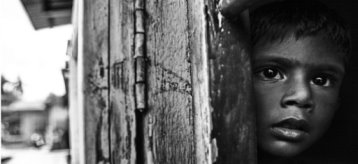Vladimir Putin, the Russian prime minister, has said in a keynote speech that the country's large foreign currency, gold reserves and anti-crisis measures would prevent a sharp fall in the rouble. Putin, speaking at a congress of the United Russia party on Thursday, said the Russian economy is still too dependent on natural resources. But the reserves built up over recent years have given the country room for manoeuvre, he said. "The reserves that we have accumulated have given us room for manoeuvre, they allow us to preserve macroeconomic stability and therefore they will help us prevent a surge in inflation and a sharp change in the rouble rate," Putin said. "We will do everything that depends on us so that the problems of past years, the collapses of past years, will not be repeated in our country," he told the congress. Stimulus package Putin also laid out a strategic vision for how Russia would respond to a crisis that has driven its stock markets down by over 70 per cent since May. The crisis has dented confidence in the Russian economy and raised the prospect that popular discontent could, for the first time in eight years, seriously undermine the ruling double act of Putin and Dmitry Medvedev, the president. Addressing the congress, Putin said: "People are asking a fair question: What is going to happen to us? "Russia, like many other developed countries in the world, is facing difficult conditions. "We will do everything in our power to make sure that there are no more economic shocks like the ones in 1991 and 1998," he said, referring to the turmoil after the collapse of the Soviet Union and, later, when Russia effectively defaulted on its foreign debt 10 years ago. Underscoring his view that the crisis was caused by excessively financial liberal policies in the United States, Putin said Russian companies should aim to finance almost all their debt from domestic sources. His proposed stimulus package includes bringing forward tax breaks for companies, more flexibility for local government to reduce taxes and an extra $1.8bn in spending on the defence manufacturing sector. In an apparent acknowledgement of the downturn's potential to hurt his government's popularity, Putin repeatedly offered reassurances he would protect ordinary people from the worst effects. With thousands of people affected by lay-offs since the start of the crisis, he announced that from January 2009 unemployment benefit would go up for some claimants by $54.66. Presidential speculation Putin's campaign-style speech is being closely watched for hints about his political future. The congress opened in Moscow one day after the lower house of Russia's parliament overwhelmingly approved a bill extending the presidential term from four years to six, in the second of three required readings. The changes have sparked fresh speculation that Medvedev could use the pretext of constitutional changes to step down early and make way for a return to the post by his mentor. Both men have played down such claims without rejecting them outright. Jonah Hull, Al Jazeera's correspondent in Moscow, said, most Russians would welcome the return of Putin as president, particularly after the effects of the economic tremors become more widely felt. "People have been sheltered from the [financial] news largely in the national media... but it is becoming ever more apparent on the streets. "If that news gets out, into the wider arena - that the banks are in trouble, that people's savings could be in trouble - they would welcome the return of Vladimir Putin as potentially the man who could save themselves from all that," Hull said.
| Source: | Al Jazeera and agencies |












Δεν υπάρχουν σχόλια:
Δημοσίευση σχολίου